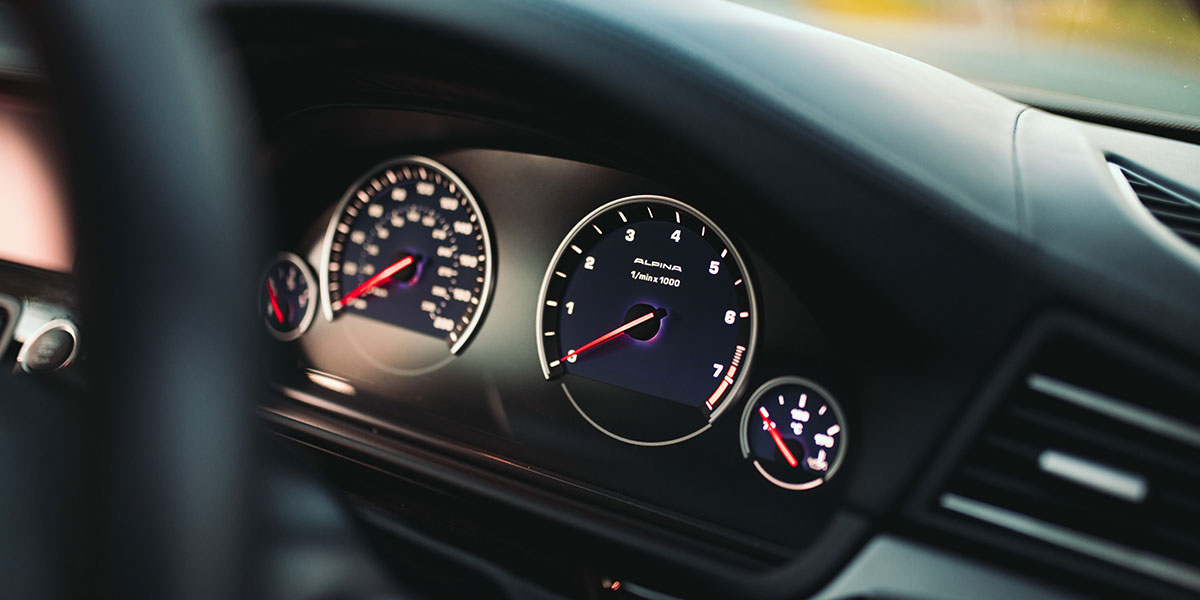If you’re looking for your next set of wheels, there are a number of things to consider. From the car’s make and model through to the kind of engine and gearbox you want, various factors come into play when deciding on your next drive. If you’re a vet of the used car market, you’ll know that one of the biggest advertising points is a car’s mileage.
The logic goes that a low mileage car is good and a high mileage car is bad, because high mileage indicates greater use and therefore greater wear and tear. But evaluating whether high mileage cars are good or bad isn’t necessarily that black and white.
What’s the average car mileage?
2023 data suggests that an average mileage for UK drivers hovers around 7,400 miles a year. By these numbers, you’d expect a three-year old car to have a mileage of around 22,200. As such, any vehicle with a six-figure mileage would be considered high, and consequently be written off as a bad investment.
But high mileage cars don’t necessarily indicate that the vehicle would be any better or worse than low mileage counterparts – it really depends on factors like its service history, the model and make of car, and the kind of journeys made.
What are the benefits of high mileage cars?
Vehicular history
When cars are only making stop-start journeys, they’re liable to more wear and tear. This is because shorter trips don’t allow the engine to properly warm up, which can cause greater deterioration over time. Plus, cars that have been used on stop-start journeys around urban areas can suffer greater wear on their suspension, clutch and brakes as a result of dealing with speed bumps.
Cars that have been used on longer journeys – like regular motorway travel – might therefore be in better condition, despite the fact that their mileage is higher. This is why ex-company cars can often be a good investment despite their high mileage, because they’ll have been consistently well maintained.
Lower cost
Cars with over 100,000 miles on the odometer will tend to put buyers off. But modern vehicles are often designed to be driven hard, and some brands are particularly known for creating cars that are capable of high mileage, provided proper upkeep is maintained throughout use.
If you find a high mileage car with a respectable service and MOT history, this is often a more cost-effective purchase than a low mileage car with poor service history and intermittent use. A high mileage car will be cheaper to buy in the first instance, and you may also find yourself spending less over time on maintenance costs if it’s been better serviced throughout its lifetime.
High mileage cars will also depreciate less than newer car models, meaning they keep their value better over time.
What to consider when purchasing a high mileage car
Make and model
Whether a high mileage car is a good or bad investment may also depend on its make and model. Certain manufacturers and specific models are more reliable than others.
Car makes and models that are known for their reliability include Toyota Prius and Avensis, Honda Civic, Ford Fiesta and Focus, Skoda Octavia, Kia Ceed, and VW Golfs.
Service history
If you’re considering buying a high mileage car, be sure to check its service and MOT history, which can be found on gov.uk. If a car has frequently failed, it won’t have been well maintained and serviced. Double check that the car isn’t in need of any significant work, so that you won’t have to fork out for this after purchase.
Ask for the vehicle’s history, or conduct your own HPI check (all you’ll need is the car’s registration number). This will give you greater insight into the car’s history, including details of any accidents.
Don’t be afraid of getting a professional to inspect the car before purchase, either (but be aware that this is an additional cost).
Car finance
Whether or not you’ll be able to get a car finance quote on a high mileage car will depend on the provider. In some instances, securing finance for a vehicle with over 100,000 miles to its name might put some lenders off.
Finance your nearly-new car
Get in contact with My Car Credit today on 01246 458 810 to find out how we can help you finance your next vehicle, no matter its mileage.
Rates from 9.9% APR. Representative APR 10.9%
Evolution Funding Ltd T/A My Car Credit
Require more help?
Got a question you can’t find the answer to, or need some advice and guidance around taking out car finance? Our Car Credit Specialists are friendly, experienced, and here to help so get in touch today!








